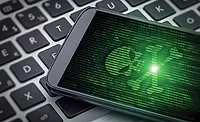Lookout Research: Commercial Surveillanceware Operators Latest to Take Advantage of COVID-19

The person or group running the campaign is likely in Libya and using their own infrastructure to run the C2, or is leveraging infrastructure they have compromised there, notes the study. While Lookout researchers have not seen anything at the moment to indicate this is a state-sponsored campaign, the use of these commercial surveillanceware families has been observed in the past as part of the tooling used by nation states in the Middle East. While nation states can and do develop their own custom tooling, they have also been known to use out-of-the-box open-source and commercial tools, as well as sometimes use commercial or open source malware as a starting point to develop their own malware, note the researchers.
"In terms of ease of acquisition, SpyNote and Mobihok have fairly cheap licensing costs, and even offer support for users to set up their applications. With sites that offer an easy checkout process and customer support, these commercial surveillanceware vendors make it possible for anyone to acquire, customize and manage their own spy tools," conclude the researchers.
Looking for a reprint of this article?
From high-res PDFs to custom plaques, order your copy today!








